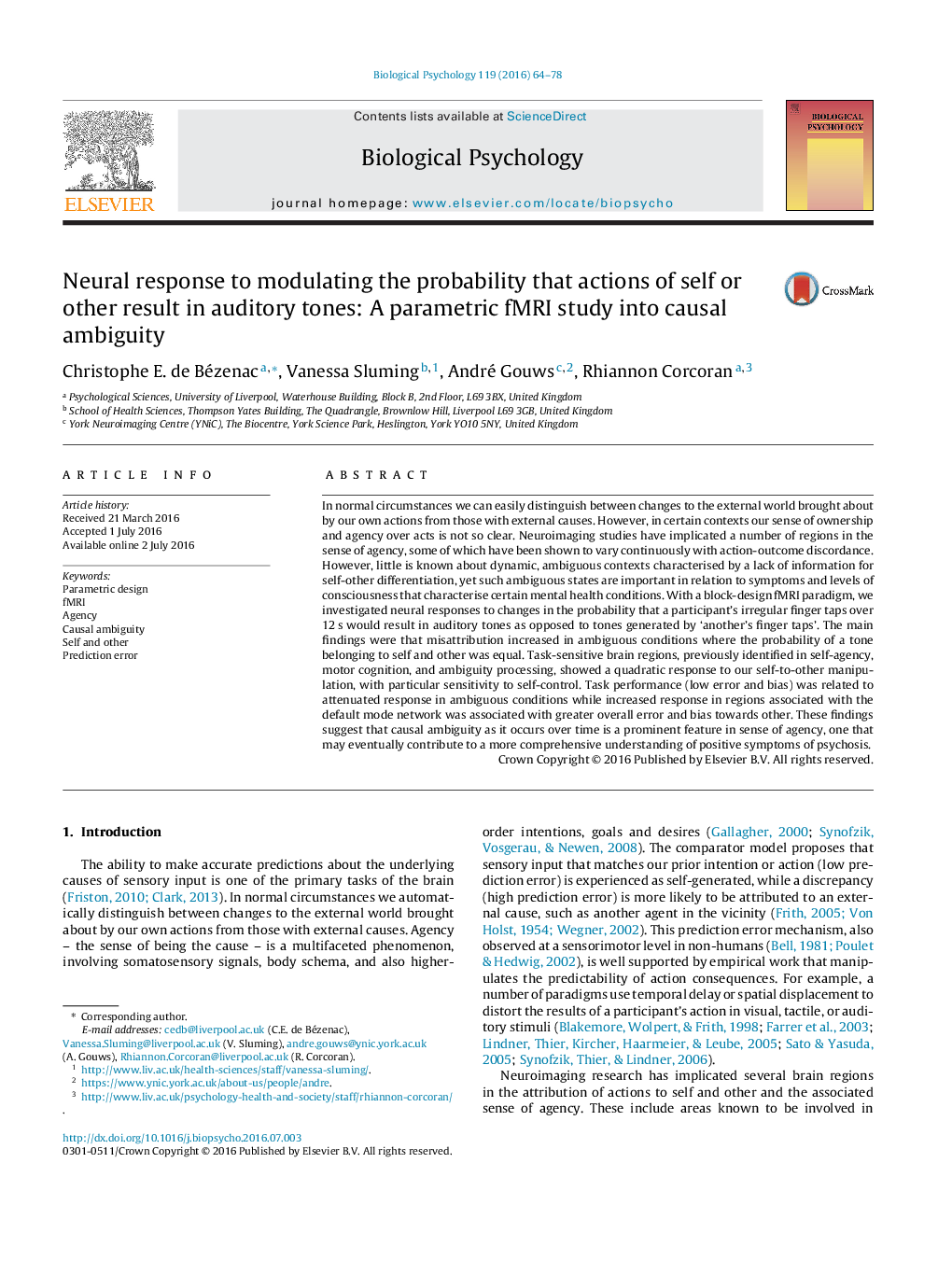| Article ID | Journal | Published Year | Pages | File Type |
|---|---|---|---|---|
| 920742 | Biological Psychology | 2016 | 15 Pages |
•A parametric agency task manipulating the probability of self-other control.•Misattribution increased in ambiguous conditions.•Task-modulated regions showed a quadratic response most sensitive to self-control.•Task performance predicted attenuated response in ambiguous conditions.•Overall error and bias towards other predicted increased response in DMN nodes.
In normal circumstances we can easily distinguish between changes to the external world brought about by our own actions from those with external causes. However, in certain contexts our sense of ownership and agency over acts is not so clear. Neuroimaging studies have implicated a number of regions in the sense of agency, some of which have been shown to vary continuously with action-outcome discordance. However, little is known about dynamic, ambiguous contexts characterised by a lack of information for self-other differentiation, yet such ambiguous states are important in relation to symptoms and levels of consciousness that characterise certain mental health conditions. With a block-design fMRI paradigm, we investigated neural responses to changes in the probability that a participant’s irregular finger taps over 12 s would result in auditory tones as opposed to tones generated by ‘another’s finger taps’. The main findings were that misattribution increased in ambiguous conditions where the probability of a tone belonging to self and other was equal. Task-sensitive brain regions, previously identified in self-agency, motor cognition, and ambiguity processing, showed a quadratic response to our self-to-other manipulation, with particular sensitivity to self-control. Task performance (low error and bias) was related to attenuated response in ambiguous conditions while increased response in regions associated with the default mode network was associated with greater overall error and bias towards other. These findings suggest that causal ambiguity as it occurs over time is a prominent feature in sense of agency, one that may eventually contribute to a more comprehensive understanding of positive symptoms of psychosis.
